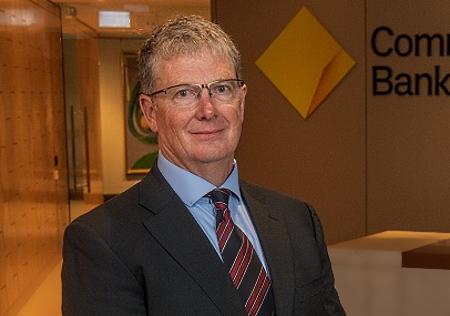
Incoming CommBank chair Paul O'Malley
Incoming Commonwealth Bank chair, Paul O’Malley, is widely recognised as one of the most effective communicators in corporate Australia and a strategic thinker with a track record of reconditioning mature businesses into viable profit spinners.
Each of these skills should serve CBA shareholders well in the years ahead as the bank prepares to confront public challenges likely to emerge in a rising rate environment.
For many years CBA’s standing in the Australian community has taken a beating, partly as a result of the board’s inability to deal with governance failures and internal crises of culture.
With O’Malley at the helm, CBA might have a chance of rehabilitating its image given his innate gift for translating complex business issues and ideas into plain English.
That skill is rare among local corporate leaders who are usually more inclined to parrot scripted lines fed by spin doctors.
Moreover, O’Malley is a dab hand at prosecuting controversial arguments in the public arena even if they encroach on the most politically charged terrain.
As chief executive of Bluescope Steel between 2007 and 2017, O’Malley demonstrated he had the courage to engage publicly in minefield debates such as the Gillard Government’s controversial carbon tax in 2011.
He can also cut deals and negotiate commercial solutions even when they might appear unachievable.
In 2015, O’Malley managed to garner union and federal government support to save the Port Kembla steelworks from closure.
The deal that he negotiated, which included union consent for a three-year wages freeze and a $200 million grant from the Abbott Government, secured a future for the Australian steel industry and preserved more than 3000 manufacturing jobs.
However, O’Malley’s appointment might not be a completely risk-free choice for CBA.
The Federal Court is yet to publish a judgment on a price-fixing case brought by the Australian Competition and Consumer Commission against Bluescope in 2019.
In its statement of claim, the ACCC alleges that Bluescope engaged in cartel behaviour to increase the price of flat steel products in the Australian market.
While it is important to highlight that O’Malley was not named as a party in the regulator’s claim, the ACCC case concerns alleged breaches of the Competition and Consumer Act that allegedly occurred in 2013 and 2014 when he was Bluescope’s chief executive.
“The conduct involved attempts to induce various steel companies, at all functional levels of the Australian steel market, to enter into arrangements containing provisions which had the purpose of raising the prices of flat steel in the Australian market,” the ACCC alleges in its claim.
“The attempts had the potential to, and were intended to, raise prices and restrain or remove effective price competition and thereby cause large scale, serious and ongoing economic harm in the Australian steel industry to a range of Australian steel users.
“By communicating its pricing strategy as part of the attempts, BlueScope gave its competitors a very strong incentive to raise prices as requested and so gained substantial benefit from the increased prospect that the price rises it initiated would be adopted, whether or not the competitors expressly agreed to do so.”
Bluescope Steel last year mounted a defence against the ACCC claim, arguing that neither the company nor current or former employees engaged in cartel conduct.
The company reported the ACCC legal action as a contingent liability in its 2021 annual report.
“Bluescope has previously conducted an internal investigation in relation to all matters covered in the ACCC’s Statement of Claim and remains of the view that neither Bluescope, nor any of its current or former employees referred to in the ACCC’s Statement of Claim, engaged in cartel conduct, or attempted to engage in such conduct,” the company told shareholders in its annual accounts.
“Bluescope is strongly defending the proceedings.”
If the ACCC wins the case, O’Malley might come under pressure from CBA shareholders to explain what he knew about the alleged breaches.